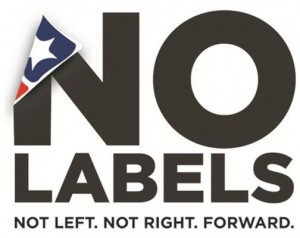By Krystal Ball, on Fri Nov 30, 2012 at 1:30 PM ET Krystal Ball’s rant this week from MSNBC’s “The Cycle”:
 Krystal’s daughter Ella Just listen to that good old-fashioned common sense. You know, really breaks our government problems down for the common man in that classically patronizing yet wholly inaccurate way that politicians seem to excel at. There are a lot of lame talking points out there, but this one probably drives me the most nuts. And while I mostly hear it from Republicans, far too many of my own have fallen for its folksy kitchen table appeal. Here’s the problem.
 First off, how much like the federal government is your household really? Granted, things may be a bit different in your home than mine but we haven’t had a whole lot a luck getting anyone to accept our family currency. And the international markets? They’ve turned their nose up at buying our bonds. When we have borrowed money, it sure wasn’t at 1.5% like US Treasuries. I will say, sometimes our neighbors do get a bit out of hand but I think a drone strike might be a bit over the top. In fairness, my daughter did attempt a Mitch McConnell style filibuster but it didn’t really work out for her. First off, how much like the federal government is your household really? Granted, things may be a bit different in your home than mine but we haven’t had a whole lot a luck getting anyone to accept our family currency. And the international markets? They’ve turned their nose up at buying our bonds. When we have borrowed money, it sure wasn’t at 1.5% like US Treasuries. I will say, sometimes our neighbors do get a bit out of hand but I think a drone strike might be a bit over the top. In fairness, my daughter did attempt a Mitch McConnell style filibuster but it didn’t really work out for her.
And actually, even if you did pretend that your household worked exactly like the largest most complex government in the world, the analogy still doesn’t make any sense! You may not have noticed but our families buy things on credit all the time. Especially at this time of year. Plenty of families take on long term debt for things like, I don’t know, a house? Or an education? In other words, investments for the future. Hey! That does actually sound like something the federal government should do. Businesses borrow too! So don’t give me this nonsense about how for families and business owners the revenues and expenses have to add up every year. They don’t. My family and many others have yet to pass a balanced budget amendment.
Finally, come on y’all. Have a little bit of creativity!!! I know you’re trying to break things down in a way that regular folk can relate to, I get it. But every time I hear a politician or pundit use this tired hokey worn-out analogy it’s like they think they’re the one who birthed this brilliant thing. Certainly everyone will be won over by their winning wit and creativity. Guys. The gig’s up. We’ve heard this patronizing, illogical, trope about 1 million times. I’m begging you. Please stop. Time to come up with some new material. Or better yet, actually have enough respect and faith in the American people that we can wrap our little minds around the big problems facing the country. Trust me. If y’all can understand it, we can too.
By John Y. Brown III, on Fri Nov 30, 2012 at 12:00 PM ET
The truth about attorneys.
Lawyers aren’t always as smart as they want you to think they are.
(Email exchange today with my law firm doing a conflict check for a potential new client.)
 Me: No conflict…. Me: No conflict….
Partner: John, Why the ellipsis?
Me: Smart people use ellipses and I never knew why. I thought it would make me look smart if I used one during the conflict check after “No.” So, that’s why I used the ellipsis.
Partner: Nice….
By RP Nation, on Fri Nov 30, 2012 at 11:00 AM ET As the new Steven Spielberg movie has reignited our national passion for our 16th President, we continue our series of posts from one of the nation’s leading experts on the topic: Dr. Matthew Pinsker, a Lincoln scholar, Civil War historian and college professor based at Dickinson College in Carlisle, PA (and of course, longtime Friend of RP). For the last five years, Pinsker has personally trained more than 2,500 K-12 educators on Civil War and American history topics, and he has also been directing the House Divided Project, a digital effort designed to help classroom teachers use the latest technologies to promote deeper study of the American Civil War during its 150th anniversary.
Click here for his first column.
Here is is second, cross-posted with Quora.com, with permission of the author:
Why do most people think of Lincoln as an anti-slavery President? Wasn’t he really more a pro-reunification president?
The best way to answer this question is to begin by defining terms. When Lincoln wrote on August 22, 1862 in his famous open letter to Horace Greeley, “My paramount object in this struggle is to save the union and is not either to save or to destroy slavery,” he was employing a word –“union”– that meant different things to different people (and still does, by the way). For Lincoln and the Republicans, the union was never merely a collection of states. Nor was it a centralized federal government or some abstract attachment to a paper Constitution.
This is the key point and what always leads to confusion. For Lincoln especially, the “union” was “the people” –as in “We the people” and what should properly be considered the fundamental and most revolutionary American doctrine of popular sovereignty.
 Professor Matthew Pinsker Look carefully at all of Lincoln’s wartime speeches and statements and you will see that behind the phrase “save the union,” Lincoln always meant to protect the results of the 1860 election which he believed had defined the popular will through a legitimate electoral process. That’s how he justified calling himself a unionist even though he led a sectional party. That’s why he refused practically all compromises during the secession crisis because he believed that they failed to acknowledge how much the election mattered. And that’s why he pursued increasingly “hard war” policies against the Confederacy, including emancipation, that ultimately turned the war into what he had once warned against, “a remorseless, revolutionary struggle.”
In other words, Lincoln was both anti-slavery and pro-union. In fact, he considered those positions one and the same, because he defined “union” as the popular will which by the 1860 election results had determined that the future of the country was to be free, or, as Lincoln put it at Gettysburg, to be “a nation conceived in liberty and dedicated to the proposition that all men are created equal.” He was always willing to reunify the country on those terms, and never willing to consider anything less. This is, by the way, exactly the question that Steven Spielberg’s new movie, “Lincoln,” intends to examine by focusing on the last few months of the war and what the movie-makers present as the fundamental choice that Lincoln navigated during that period between pushing for a Thirteenth Amendment to abolish slavery or pursuing potential peace talks with Confederates.
By Jonathan Miller, on Fri Nov 30, 2012 at 9:15 AM ET The RP sent the following op-ed to hundreds of college newspapers on behalf of No Labels.
You may have more in common with your member of Congress than you think, especially around this time of year.
Students and lawmakers alike want to finish up the year and head home for the holidays.
But there’s a final exam standing between Congress and Christmas — and America’s citizens are ready to give the body an “F” if it doesn’t pass. That exam is coming in the form of the “fiscal cliff” — the combination of arbitrary, automatic, across-the-board spending cuts and tax increases coming at the end of the year that could cripple the economy.
It all started last year when Congress picked 12 of its members to try to find a deal to secure America’s long-term financial future. Consumer confidence had dropped dramatically and a credit ratings agency dropped our country’s rating. It seemed the only thing that could make members of both parties work across the aisle was an alternative so terrible that it would be untenable to both parties.
That alternative is coming closer and closer to reality — and unfortunately, it is your generation that will have to pay the highest price. The Congressional Budget Office has predicted that if we do not avoid the fiscal cliff, the $7 trillion combination of spending cuts and tax increases could send the economy hurtling back into recession for years to come. Unemployment, especially among young people, will rise even further. Education will suffer among the harshest spending cuts, losing about $4.8 billion in funding.
Our leaders have had more than three years to address these issues — imagine if you had that long to prepare for a test. Yet rather than hunkering down in the library, or in their case the Capitol Building, to solve this crisis, leaders of each side aren’t even meeting right now to talk about what’s going on. How is this going to solve anything? We need real solutions. These solutions begin with both parties understanding that they need to work together to stave off this crisis.
 No Labels — a growing grassroots movement of more than 600,000 Republicans, Democrats and independents — is working to facilitate just this kind of cooperation. Since last year, we’ve been advocating for leaders in all negotiations to put everything on the table and ensure all interested parties are at the table. You can be a part of this movement and sign on at NoLabels.org These solutions can also help fix the underlying problem: the way Washington does business. We need to find real and permanent ways for our leaders to come together to govern for the future. Because our nation’s financial situation is not the only problem America faces. We need our leaders to come together and find solutions in immigration, energy and infrastructure policy. No Labels — a growing grassroots movement of more than 600,000 Republicans, Democrats and independents — is working to facilitate just this kind of cooperation. Since last year, we’ve been advocating for leaders in all negotiations to put everything on the table and ensure all interested parties are at the table. You can be a part of this movement and sign on at NoLabels.org These solutions can also help fix the underlying problem: the way Washington does business. We need to find real and permanent ways for our leaders to come together to govern for the future. Because our nation’s financial situation is not the only problem America faces. We need our leaders to come together and find solutions in immigration, energy and infrastructure policy.
As Washington’s current stalemate has shown, we can’t afford to wait for Congress to find bold, pragmatic across-the-aisle solutions. Changing Washington won’t happen quickly. But even you would have a hard time cramming three years worth of work into one night. What we can do now is commit ourselves, and hold our elected officials accountable, to the idea that progress is only made when our common national interest is the priority. And that is what No Labels is all about.
By Julie Rath, on Fri Nov 30, 2012 at 8:30 AM ET Socks, swords, and a sled built for speedfreaks… What more could you ask for this holiday season? Read on for 15 Rath-approved holiday gifts.
STOCKING

1) Make a quick getaway from your style rut with this wool suiting pocket square ($10). Wear it with a navy blazer or suit, a light pastel shirt and a dark wool tie.

2) For the drink that’s always with you, a stately flask with the Russian coat of arms ($25).

3) Socks are a holiday gift list mainstay, and these Etro Herringbone socks won’t disappoint ($39).
SNAG

4) This cozy wool hat ($88) comes in charcoal, navy and cream, so there’s something flattering for everyone.

5) I always like to look for belts that are a bit “different” to help my clients define their style, and this two-tone leather belt ($180) is an excellent find with its unexpected blue buckle.

6) Silk scarves are dressier in feel than their wool or cashmere cousins, but they do work casually. Try one like this Jack Spade dress scarf ($185) draped simply around your neck when a tie is too much and an open collar just isn’t cutting it.

7) The frequent traveler’s defense against wrinkly neckwear: a tie case ($185), this one from Pierrepont Hicks.

8) Nothing says holiday cheer like swordplay. Make like Napoleon, and open your next bottle of champagne with a Champagne Saber ($189). (Yes, you really can open a champagne bottle with a sword; click for a video play-by-play.)

9) Manly yet romantic, this Etro paisley scarf ($245) can take an outfit from zero to sixty with one swift loop around the neck.

10) For the guy who can’t afford to be unplugged, try Burberry’s touch screen leather gloves ($325).
SPLURGE

11) Form and function come together elegantly with this collapsible beach table and chair set ($495) which folds down to the size of a tote bag.

12) Sophisticated and sumptuous, this Loro Piana suede belt ($500) works with everything from jeans to a suit. And you don’t need suede shoes to rock this — it works just fine with brown leather in a similar shade.

13) Nothing beats a smooth black briefcase for making a smart and stylish impression. This one from Thom Browne ($1850) is a handsome option.

14) For the watch connoisseur, this solid leather rotary watch case ($3720) from Smythson has two Swiss-made rotators to keep his timepieces in top-notch condition.

15) The Snolo High Performance Alpine Sled (price upon request) can hit speeds of over 40 mph on average gradient slopes, and, on top of that, it can be folded into a backpack by collapsing one locking nut. Perfect for the speed demon with space issues.
What’s on your wish list this holiday season?
By Zack Adams, RP Staff, on Thu Nov 29, 2012 at 3:00 PM ET  The Politics of Tech Rep. Darrell Issa (R-CA) has proposed a piece of legislation he calls the Internet American Moratorium Act of 2012. The aim would be to “create a two-year moratorium on any new laws, rules or regulations governing the Internet.” [CNN]
A BGR writer posts a plea to Google: to please bring Google Fiber to his city to save him from Comcast. [BGR]
We all know that no one person, organization, or country runs the Internet. However, in the near future the United Nations could seek control of the Internet, unless the U.S. takes action, warns the Wall Street Journal. [WSJ]
Google has combined Drive with Gmail enabling file transfers up to 10GB. [CNET]
Women in Saudi Arabia are now being tracked electronically [Raw Story]
Should coding be taught in elementary schools? [Venture Beat]
By John Y. Brown III, on Thu Nov 29, 2012 at 12:00 PM ET  Every month I have dinner with a wonderful group of guys. We usually each pay for our own dinner but every few months someone feels a call to pick up the ticket for everyone. I felt the call about three months ago but didn’t pick up the check at the time but did announce to the group I would be doing so sometime in the near future . Every month I have dinner with a wonderful group of guys. We usually each pay for our own dinner but every few months someone feels a call to pick up the ticket for everyone. I felt the call about three months ago but didn’t pick up the check at the time but did announce to the group I would be doing so sometime in the near future .
Tonight was to be that night.
Sort of, anyway.
As we were finishing dinner, I furtively slipped by the cashier and asked how much our table’s dinner would be because I “may” be picking up the check. The cashier pointed to a much higher figure than I had imagined and explained that a 15 % gratuity was automatically added since there were over 7 of us. I told her I would not be picking up the check this time after all but maybe would buy dessert for the table.
The dessert menu was described to the table and no one ordered anything.
Hmmmm. Now what ?
And like a brilliant thunderbolt crashing through my brain, I suddenly had an ingenious and novel idea!
I went back to the cashier and said, “Look, how about I pay for 25% of the bill? Can you work that out for me?”
 The cashier politely said it shouldn’t be a problem but added that no one had ever made that request before. “How would that work ? ” she asked. The cashier politely said it shouldn’t be a problem but added that no one had ever made that request before. “How would that work ? ” she asked.
“Well,” I said, “Just take 25% off the top and charge everyone else only 75% of their meal.” I looked at her incredulously like this is something that is requested all the time in large groups where the big shot is also fiscally prudent.
A few minutes later she came by the time and whispered in my ear, “Does that 25% off the top include the tip?”
“Yes,” I said. “Look, just charge me one-quarter of the total price and divide up the remainder evenly–including the tip.”
At this point the person next to me said , “Just give me the check. I’ll cover it.”
I insisted I pay 25% and a small big shot verbal scuffle over the bill ensued. “Oh, are you serious about getting 25% of the tab? I thought you were joking.”
“I am completely serious,” I exclaimed, hoping someone else at the table would notice. “Why don’t you pick up the remainder, whatever that is, like….oh, 75%?” And he did.
I announced to the table that although I wasn’t picking up the entire tab (because it was too expensive) that I I was covering 25% –which was worth noting. And added that I was glad one person who was supposed to attend had cancelled. “That’s 25% of one meal I didn’t have to cover.” I then added I would be picking up 10% of a meal this summer and up to 20% of a meal in the fall so that I would incrementally pick up 100% of one of our group dinners…but was going to stretch it out over an 18 month period of time.
But as we shook hands and said goodbye until next month’s dinner everyone was thanking my friend for dinner and not giving me an honorable mention but instead a quizzical or bemused look when I explained again how we had divided things up.
Finally, with the last friend to say goodnight I simplified it by explaining the situation more concretely. “You know those au gratin potatoes you had tonight? Well, I paid for them. The entree, drink, and salad was picked up by someone else. So just thank me for the au gratin potatoes.”
And that was that. I spent more than I had planned to appear to be a big shot and looked cheaper than ever.
But learned a valuable lesson. When trying to impress by offering to pay for dinner it never works to try to do it a la carte. It’s an all or nothing proposition. Like most things in life.
By Michael Steele, on Thu Nov 29, 2012 at 10:00 AM ET I was asked recently what lesson should the GOP have learned from the results of the 2012 presidential election. That’s easy: You can’t please everyone, but you sure can tick them all off at the same time!
Voters were not in the mood for petty political bickering or platitudes about “hope.” And they certainly weren’t in the mood for a conversation about “vaginal probes” or contraception. In fact, as the campaign dragged on they grew increasingly more skeptical of so called “political solutions” and even more negative about the direction the country was taking despite slight upticks in GDP and decreases in the unemployment rate. The most disturbing fact: more Americans now think their children will be worse off than they are.
These factors, among others, were intricate parts of a national debate that did not happen. Keep in mind, the stakes were already high due to the unceasing drag on the economy, the end of the Bush tax cuts, increasing tax rates vs. cutting tax loopholes. Consequently, the election results serve as an important lesson for both parties: for Democrats it’s time to stop blaming Bush and lead; and for Republicans it’s time for a reality check.
As I noted throughout the campaign, an overwhelming majority of voters sought answers and progress on the challenges we face, but Republicans found themselves preoccupied with amassing goo-gobs of cash instead and missed an important opportunity to use that cash to build on the successes of 2010 by communicating a message that was not bound by party lines. (To paraphrase my MSNBC colleague Chuck Todd after the election: “Republicans spent most of their time talking to themselves.”)
Consequently, voters were otherwise offered unprincipled drivel about nothing of much importance — that is, when we weren’t alienating African-Americans, Hispanics and anyone else who happened to get in the way of our talking to ourselves.
 In my travels on behalf of federal, state and local candidates 2010, I saw a new generation of Republican leaders emerge who were serious about fiscal stewardship and who respected the opinions of those with whom they may not always agree. For example, then-candidates like New Mexico Gov. Susana Martinez and Congressman Tim Scott of South Carolina; or Govs. Chris Christie of New Jersey and Bob McDonnell of Virginia reflected the communities they came from and spoke with clarity on the issues that mattered in the everyday lives of individuals and families. In my travels on behalf of federal, state and local candidates 2010, I saw a new generation of Republican leaders emerge who were serious about fiscal stewardship and who respected the opinions of those with whom they may not always agree. For example, then-candidates like New Mexico Gov. Susana Martinez and Congressman Tim Scott of South Carolina; or Govs. Chris Christie of New Jersey and Bob McDonnell of Virginia reflected the communities they came from and spoke with clarity on the issues that mattered in the everyday lives of individuals and families.
They knew and expressed with authenticity that there is no magic formula, secret potion or handshake that will make the GOP more attractive to voters. It would require work. Honest, hard, often frustrating but always important work! And they were ready to do the hard work required of true leaders and they won — from New Mexico to South Carolina; New Jersey to Virginia — with a message that never compromised our principles but did demonstrate the true breath of the GOP’s tent and our commitment to strong families, a strong economy and a safe and secure community in which to live.
The Republican leadership forgot that and got spanked.
While the postmortems continue, the Grand Old Party must once again become the Party of Lincoln — The Grand Opportunity Party. The top-down puppet management of the Republican National Committee must recognize our strength does not rest in their special interests but rather in the interests of our grassroots; that it’s finally time to give way to those “Hip Hop” Republicans I talked about in 2009. And no, I’m not talking about (as I wasn’t then) dressing Sen. Mitch McConnell in some bling and a Pelle Pelle Throwback leather jacket. Rather, I’m talking about creating a state of mind within the GOP more reflective of America’s exciting and vibrant culture, as diverse as it is bold.
Read the rest of…
Michael Steele: Opportunity Lost?
By Josh Bowen, on Thu Nov 29, 2012 at 8:30 AM ET  If there are any trainers that read my rants you can sympathize with me on the following statement made by a client, “My doctor told me not to squat.” Oh he did, did he? Well isn’t that great, what in the world am I going to do to strengthen your legs? Hold up! Do me a favor and get up and down from that chair. So you know what I am getting at. There are some uneducated people out there that tell patients to stay away from certain activities, not realizing that those activities could potentially help the situation. I’ve incurred this situation several times in the 8 years I have been a trainer, nothing surprises me. If there are any trainers that read my rants you can sympathize with me on the following statement made by a client, “My doctor told me not to squat.” Oh he did, did he? Well isn’t that great, what in the world am I going to do to strengthen your legs? Hold up! Do me a favor and get up and down from that chair. So you know what I am getting at. There are some uneducated people out there that tell patients to stay away from certain activities, not realizing that those activities could potentially help the situation. I’ve incurred this situation several times in the 8 years I have been a trainer, nothing surprises me.
The squat is the most basic, primal movement that humans do. We squat when we get in and out of a car, we squat when we get up and down from a chair and when we have to go to the bathroom (#2 for men and always for women) we squat. So how on earth could someone tell me that I can’t squat? Most doctors are not as educated on fitness and it impacts the body, so its easy to tell people what to stay away from. If you have a bum knee its probably not wise to load a bar up with 300 lbs and go at it. But what doesn’t make sense is why you wouldn’t perform the movement at all, without weight.
Have you ever looked a baby and how they sit back on their heels and drop their butt to the floor in a full squat? The point I am trying to get at is humans were meant to squat, in some shape, form, or fashion. It’s true so you cannot argue J
So how does squatting benefit me if I have knee problems? Well let’s first look at your “knee problems.” More often than not (general statement here) the problem is not your knee. Huh? Yes, the problem often stems your ankle or your hip causing the pain to occur in and around the knee capsule. This is called “site VS source.” The site is not always the source of the problem. So if you have hip issues or ankle issues, proper squat technique can actually realign the body to its correct movement pattern. Also becoming more flexible in the hip flexor and hamstring area will help as well.
Here are the benefits of proper squatting (bodyweight progressing to weighted):
- Neuromuscular coordination- squatting (weighted or bodyweight) will train the brain and the muscles to work in harmony. If you have trouble squatting correctly place a box or bench behind you and sit back and touch and explode up.
- Lower Body Strength- no exercise (no exercise!) builds strength better than squatting. Everyone needs strength, whether you are a stay at home mom or a professional athlete, our lives demand a certain amount of strength.
- Injury Prevention/Rehabilitation- To prevent injuries you must make sure the body can handle and create force. Squatting allows the body to build muscle and strength required of everyday life. Also, allows the body to become flexible in the lower extremities (cause of a lot of injuries).
So, in conclusion if your doctor tells you not to squat, so him my article and have him call me. I will convince him otherwise.
By Artur Davis, on Wed Nov 28, 2012 at 3:30 PM ET It is a measure of Chris Christie’s aura that serious people think his effusive praise of Barack Obama in the hours after Hurricane Sandy might have reelected the president. The likelier truth is that there are precious few undecided voters in Ohio and Virginia who know the name of the New Jersey governor, much less value his imprimatur as the tipping point in their electoral decision-making process. But Christie’s force of personality is one of the few authentic magnetic fields in politics that don’t bear the name Clinton or Obama, which guarantees disproportionate, even illogical, levels of attention when he makes moves.
That bravura suggests why Christie remains such an intriguing path for Republicans contemplating 2016. To be sure, there are mounting doubts about whether he is the one. The narrative that Christie is not a team player is gaining traction with Republican activists, who were confounded by the sound-bites of a Republican hero lavishing praise on the arch-enemy. The professional operative class that assesses political personalities for signs of trouble links his post-Sandy comments with a keynote address that seemed oblivious to the party talking points in Tampa, and they see a worrisome absence of discipline. The ones with a bent for pop psychology see brittleness masked as self-regard, and suggest that Christie must have been partly motivated by a fear of how difficult his reelection might be in a state Obama dominated, or even a burning fuse based on not being given a right of first refusal on the vice presidential nomination.
But the critiques on Christie are a reflection of the odd waters of modern politics. If Christie’s press conference seemed too much, it is largely because such post-disaster events are so typically sanitized with platitudes: In other words, public figures shrinking under the glare and resorting to a contrived, bland insincerity. The consensus that Christie underperformed in Tampa stems from a mindset that success on such stages is measured either by a cascade of glossy but insubstantial poetry or at the other end of the scale, a hard-edged partisanship. Surely, a politico with Christie’s game shouldn’t have spent his moment describing the minutiae of gubernatorial leadership; surely, if he outlined the national threat, it should have been in the form of a prolonged lease on the White House by the other party not in the possibility that both parties might be overwhelmed by the demands of the historic moment.
Read the rest of…
Artur Davis: Why Chris Christie Won’t Fade
|
The Recovering Politician Bookstore
|
First off, how much like the federal government is your household really? Granted, things may be a bit different in your home than mine but we haven’t had a whole lot a luck getting anyone to accept our family currency. And the international markets? They’ve turned their nose up at buying our bonds. When we have borrowed money, it sure wasn’t at 1.5% like US Treasuries. I will say, sometimes our neighbors do get a bit out of hand but I think a drone strike might be a bit over the top. In fairness, my daughter did attempt a Mitch McConnell style filibuster but it didn’t really work out for her.































